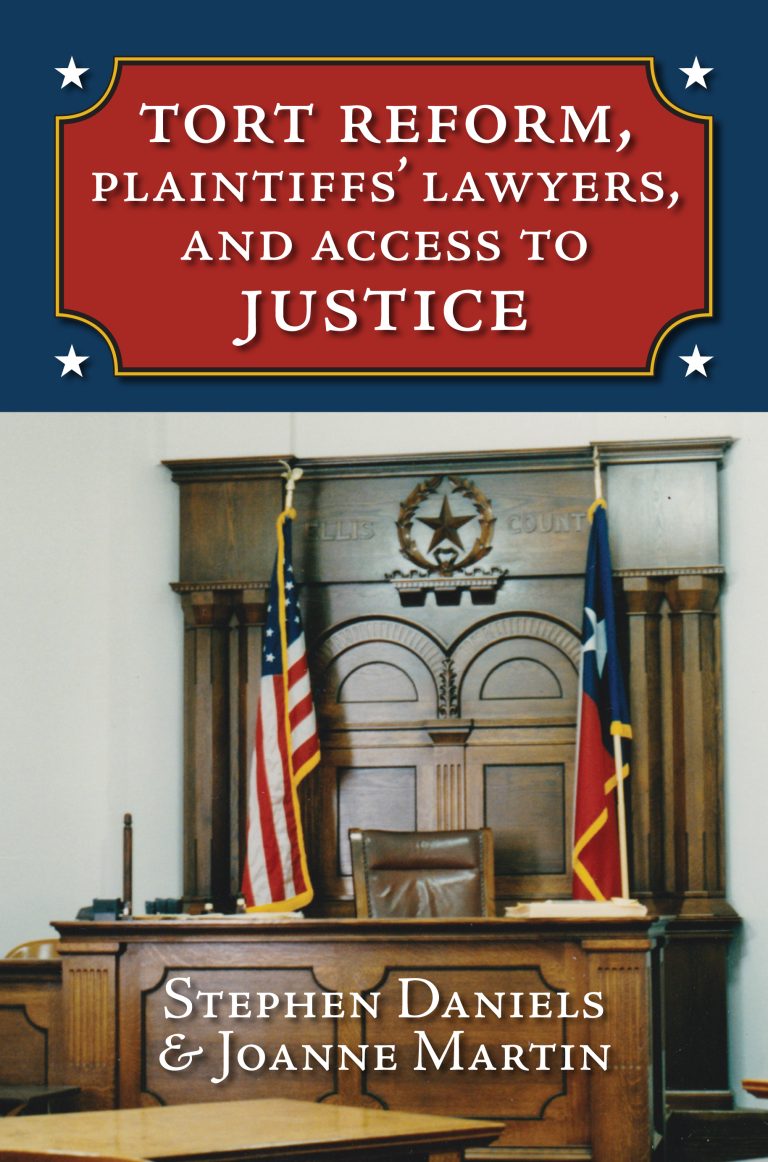From University Press of Kansas
Tort reform is a favorite cause for many business leaders and right-leaning politicians, who contend that out-of-control lawsuits throttle growth and inflate costs, particularly in healthcare. Less is said about how such reforms might affect the ability of individuals to recover damages for injuries suffered through another party’s negligence. On that count, Texas—where efforts at tort reform have been energetic and successful—provides an opportunity to appraise the outcome for plaintiffs and their lawyers. Because much of the action on tort reform takes place on the state level, a look at the experience of Texas, a large and important state with a very active plaintiff’s bar, is especially instructive.
Drawing on over 20 years of research, extensive surveys and interviews, the authors explore the impact the tort reform movement in Texas has had on the ability of plaintiffs to obtain judgments–in short on private citizens’ meaningful access to the full power of the law.
Plaintiffs’ lawyers are the civil justice system’s gatekeepers, providing meaningful access to the rights the law provides. Daniels and Martins thorough and fair-minded work offers a unique and sobering perspective on how tort reform can curtail this access—and thus, the legal rights of American citizens.

